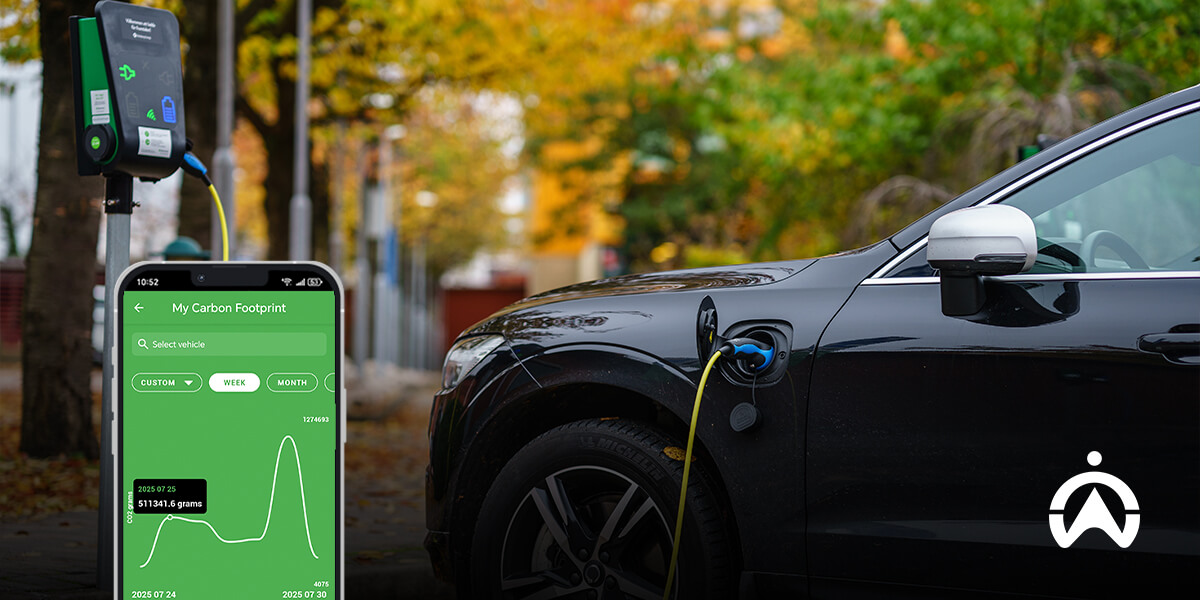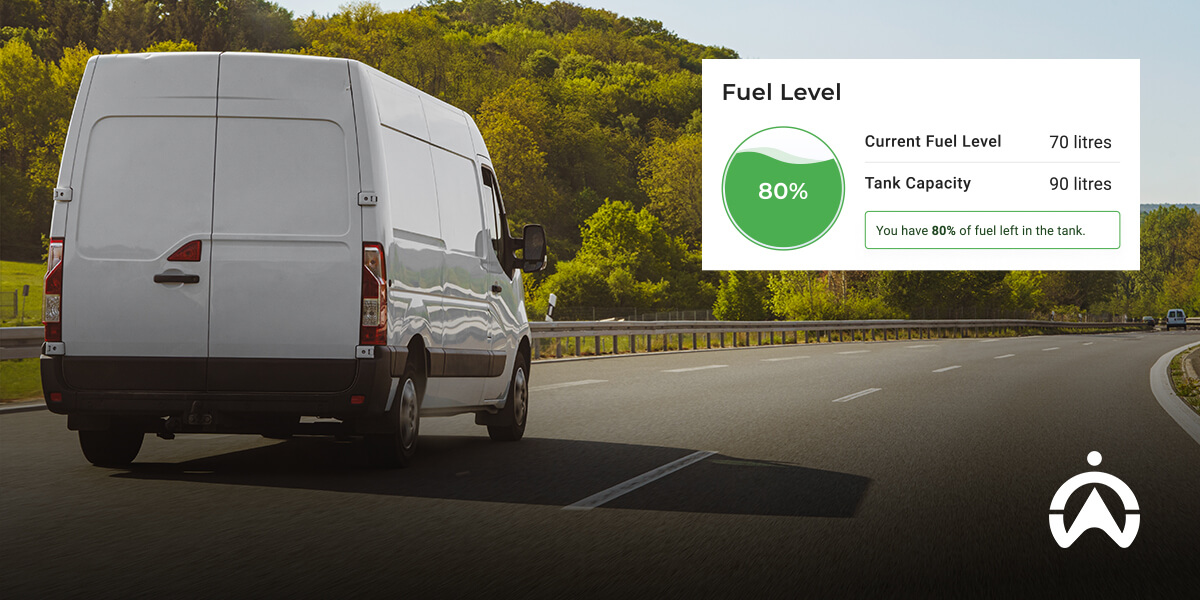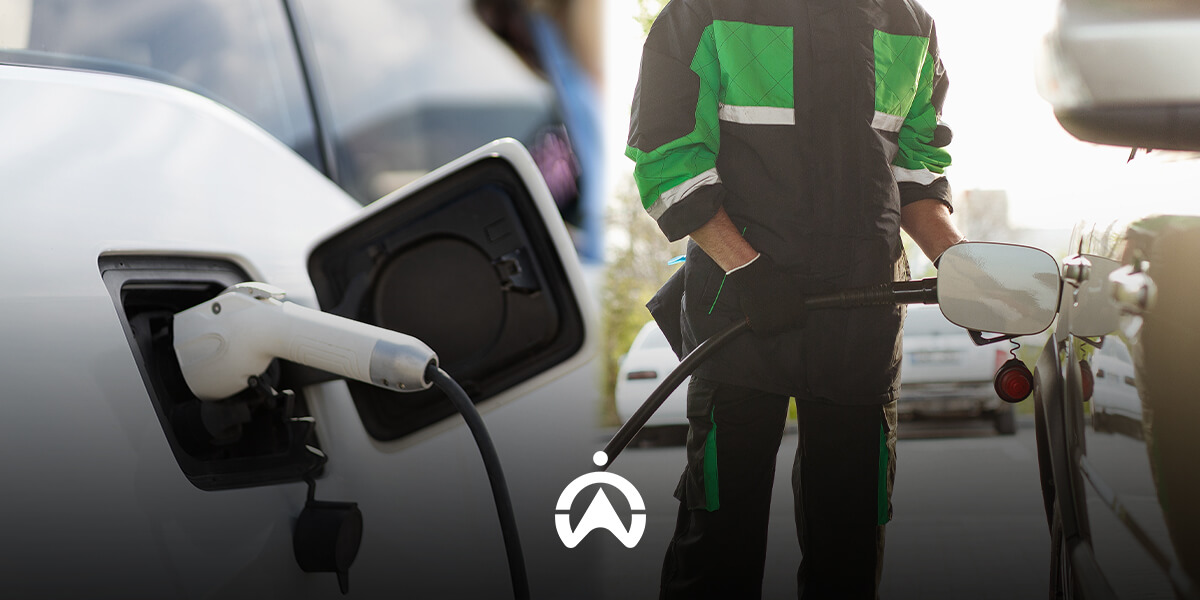The decision between petrol vs diesel vs electric cars depends on many factors. These include upfront costs, running costs, operational needs, environmental impact, tax implications in your area, and fuelling infrastructure. Choosing the right engine is essential for fleet efficiency and cost management purposes.
The type of engines you pick directly affects your fleet's fuel economy, operational costs, and how vehicles perform. Fuel prices around the world are always fluctuating. According to Motor Happy, this is driven by external factors such as international crude oil prices. While this is out of your control, you, as the fleet manager, have the capacity to influence fuel consumption, thereby reducing costs.
Let’s look at the key differences among these three options so you can make a more informed decision. We’ll also show you how our solutions cater for all of these fuel categories.
Petrol, diesel, and electric cars all have unique characteristics. They all come with some advantages and disadvantages. Your fuel selection should meet your business’s specific needs. By understanding these key differences, you’ll be in a better position to make smarter investment choices.
Here’s a table comparison of the three fuel types. We delve deeper into these factors further down in the article.
Vehicles that use petrol are often the least expensive in terms of the upfront cost. This type of fuel also tends to be cheaper compared to others, and it’s widely available. However, the fuel in petrol-powered cars doesn’t last long. They’re therefore the least fuel-efficient compared to other alternatives.
Carbon dioxide emissions from cars are a huge contributor to climate change. Petrol cars tend to emit more greenhouse gases compared to other fuel types, especially over their lifetime. This will have a high impact on your fleet’s total carbon emissions and result in higher fuel taxes.
Diesel cars have components that are similar to those of petrol cars. They have an internal combustion engine and run on fossil fuels. Diesel cars tend to have a longer lifespan than petrol and electric vehicles. You’ll get more kilometres per litre with them, and that’s what makes them more attractive to fleets that often do long-distance trips.
The downside of diesel cars is that they’re considerably more expensive to purchase outright, and are louder. Although they produce slightly less carbon dioxide, the heating air in diesel vehicles produces more nitrogen oxides (NOₓ), which are said to be more toxic to humans. Nitrogen oxides include nitrogen dioxide (NO2) and nitrous oxide (N2O). They can cause respiratory issues, which can turn fatal at higher levels of exposure.
Also known as EVs (electric vehicles), these are vehicles that don’t have an internal combustion engine. They’re powered by an electric motor and battery pack. Since electricity is cheaper than petrol or diesel, EVs cost far less to keep running. EVs also emit zero greenhouse gases, making them the most environmentally friendly.
In contrast, EVs are typically the most expensive vehicle types compared to petrol and diesel; yet they depreciate faster. According to EuroNews, one of the reasons for rapid EV depreciation is that the newer EV models deliver longer driving ranges and faster charging times. This makes the older ones appear outdated, affecting their resale value.

The factors you should consider when choosing fleet vehicles are total cost of ownership, operational requirements, environmental considerations, infrastructure, and future-readiness. Together, these factors directly impact your fleet’s overall expenses, performance, and success. Knowing what to look for will make it easier to determine the ultimate fuel choice for your fleet.
Let’s have a look at each of these considerations:
Diesel vehicles often require more maintenance. Vehicles with internal combustion engines (petrol and diesel) have many moving parts (such as the transmission and exhaust system). This creates greater maintenance needs such as spark plug replacements, oil and filter changes, and air filter replacements. Diesel engines, therefore, require more maintenance because of their complex build.
No matter which engines power your fleet, keeping the running costs under control is key. Cartrack’s fleet management and fuel monitoring solutions will give you real-time insights into your fleet’s fuel consumption, efficiency, and overall performance. With us, you can make smarter decisions that’ll boost savings.
Here are some of our top solutions for managing fuel expenses:

In conclusion, there’s no one-size-fits-all answer for which engine would best suit your fleet. Diesel suits long-distance fleets where fuel efficiency and range matter most. Petrol is for fleet businesses in urban areas, perfect for light use. EVs are ideal for urban short-range fleets with access to charging stations, offering low running costs and regulatory benefits.
A mixed fleet is what other businesses prefer, as it’s generally better for balancing costs, environmental impact, and operational flexibility. Whichever one you choose, we have solutions that’ll make running your fleet easier. Contact us today, and let’s help you see where your fuel really goes.
Insufficient charging stations are one of the biggest issues drivers experience when using electric cars. The infrastructure in South Africa is expanding rapidly, most of them are centred in larger cities. The EV network is still growing, with companies such as Rubicon planning to add fast-charging stations to major routes in smaller towns.
The future of hydrogen vehicles will depend on factors like producing hydrogen in a clean and sustainable way, and building widespread refuelling infrastructure for everyday use. Chemistry World highlights how big companies such as Toyota, Hyundai, and BMW continue to develop and promote hydrogen-powered cars, believing they offer unique advantages.

Compare petrol, diesel, and electric fleet vehicles and discover how we help you manage fuel costs and efficiency for your business.